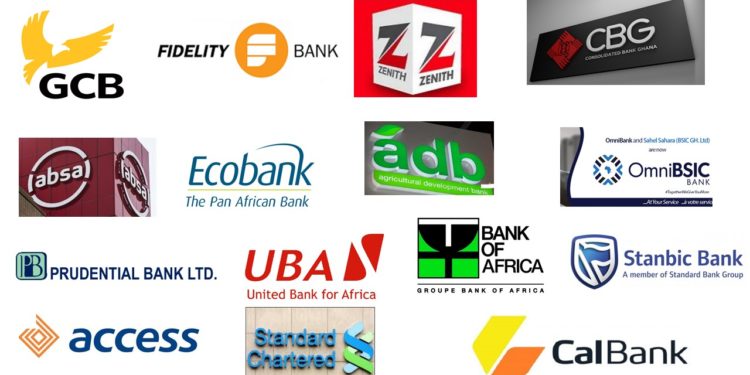Credit: Kekeli K. Blamey
Ghana’s banking sector has made significant strides in recovering from the impact of the Domestic Debt Exchange Programme (DDEP), with 13 formerly undercapitalised banks now meeting or exceeding regulatory capital requirements.
However, the International Monetary Fund (IMF) warns that the recovery remains uneven, with some institutions still facing substantial risks.
In its latest country report, the IMF confirmed that these 13 banks had restored their capital positions by end-2024 and are on course to achieve the Bank of Ghana’s minimum Capital Adequacy Ratio (CAR) of 13% by the end of 2025. But not all financial institutions are on track.
One state-owned bank and several others remain materially behind schedule, hindered by delayed shareholder capital injections, elevated non-performing loans (NPLs), and slow recognition of credit impairments.
These banks are now under intensified regulatory scrutiny, with the Bank of Ghana enforcing corrective actions to bring them in line with the recapitalisation timeline.
The report also highlights the role of the Ghana Financial Sector Stability Fund (GFSF), including a World Bank-financed component that could support struggling banks—provided they secure the minimum capital levels required to access the fund.
Despite a modest improvement in credit quality, the NPL ratio remains worryingly high at 22.6% as of end-2024, down from 26.7% earlier in the year. Authorities are pushing for stronger credit risk management, improved loan classification practices, and strict monitoring of banks’ NPL reduction strategies to address ongoing vulnerabilities.
Specialised Deposit-taking Institutions (SDIs)—crucial for financial inclusion—continue to face acute capital shortfalls and legacy challenges. Progress on the Ghana Financial Sector Strengthening Strategy (GFSSS), which aims to address these issues, has also been slow.
The Bank of Ghana is responding by reviewing prudential standards and pushing forward the implementation of international regulatory frameworks Basel II and III. It has also informed banks that all regulatory reliefs introduced after the DDEP will be fully withdrawn by the end of 2025.
While recapitalization progress is encouraging, the IMF stresses that restoring full financial sector stability will require sustained reform, decisive oversight, and timely capital mobilization—especially for lagging institutions.







